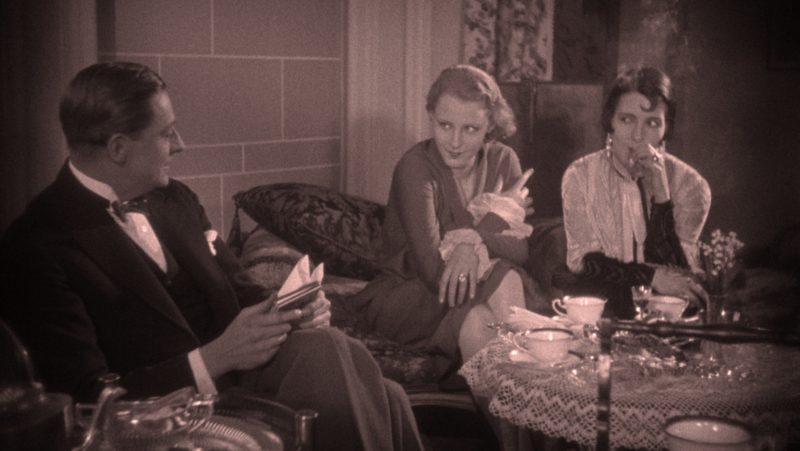Brigitte Helm, the diva discovered by Fritz Lang in Metropolis – her role as the robot-woman has become a world-famous cinema icon – is featured on Thursday 8 October (starting at 8:30 pm Italian time) at the Pordenone Silent Film Festival – Limited Edition in Abwege (Crisis; 1928), directed by Georg Wilhelm Pabst. In the second of three films made with the great Austrian director, Helm steps into Pabst’s gallery of great female figures – together with Asta Nielsen, Greta Garbo and above all Louise Brooks – who embody Lotte Eisner’s concept in which romantic fantasies are fused with nightmare in Weimar Germany. She appeared in ten silent films and sixteen talkies, almost always playing the “femme fatale”, but soon abandoned cinema for good, in open opposition to the Nazi regime; Pabst’s uneasy relationship with the Third Reich remains a contentious subject, though his 1955 film Der letzte Akt is clearly anti-Nazi. In Abwege, presented here after its restoration by the Münchner Filmmuseum in a beautifully tinted print, Brigitte Helm plays a bored rich woman in a state of marital crisis who decides to open a nightclub for an equally affluent and weary clientele. The film is a kammerspiel with a focus on actors and atmosphere, and on camera movements and editing, once again displaying the elegance of Pabst’s style. Abwege had few surviving intertitles, and it was only with the rediscovery of the original screenplay at the Cinémathèque française and a study of all the contemporary German reviews and theatre programmes that the original texts could be reconstructed, which is essential for an understanding of the interaction between the characters.
One last point of interest: the male lead in Abwege is Gustav Diessl, who was in Italy between the later 1930s and 1948, and worked with Carlo Campogalliani, whose comedy La tempesta in un cranio (Kill or Cure) was seen on the festival programme on 6 October.
A live streamed conversation about Pabst’s film will follow, addressing its restoration, which has fully revealed its meaning and original beauty, and the musical accompaniment. Festival director Jay Weissberg will be joined by Stefan Drössler, Director of the Munich Film Museum, and Pordenone-born pianist Mauro Colombis in Sydney.
The Masterclass on Thursday 8 October, starting at 4 pm Italian time, will be led by the Canadian pianist and composer Gabriel Thibaudeau. During the book presentation (starting at 5 pm) Richard Abel will speak about his Motor City Movie Culture, 1916-1925 and the early history of cinema in Detroit. The second presentation, with Sarah Street and Joshua Yumibe, authors of Chromatic Modernity: Color, Cinema, and Media of the 1920s, will look at the influence of multiple colouring techniques on the visual culture of a century ago.
The Pordenone Silent Film Festival takes place thanks to the support of the Regione Autonoma Friuli Venezia Giulia, the Ministero per i Beni e le Attività Culturali – Direzione Generale per il Cinema, the City di Pordenone, the Pordenone-Udine Chamber of Commerce and the Fondazione Friuli.


 Italiano
Italiano
Recent Comments